Collaborative recycling
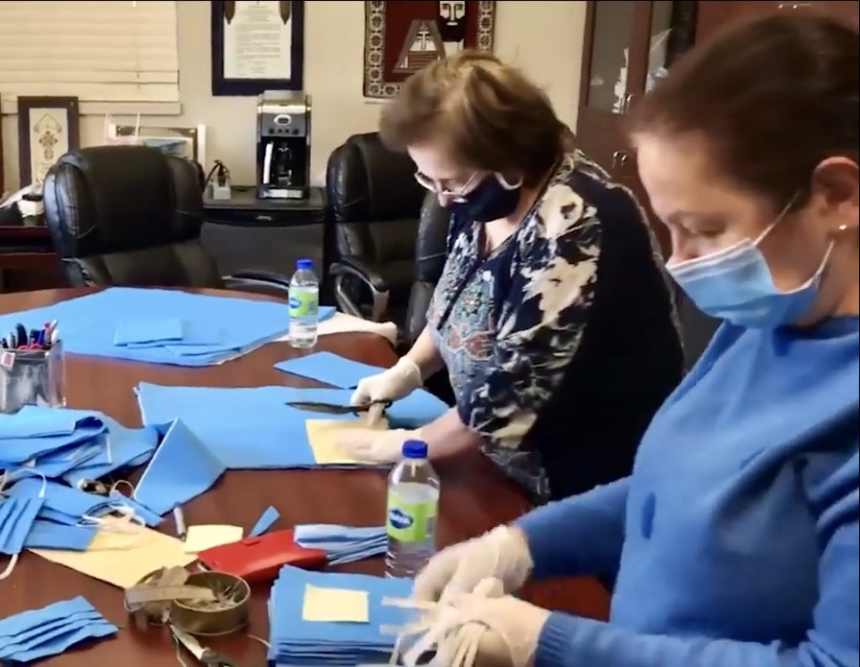
How unprecedented collaboration is at work to support our healthcare professionals - while recycling!
“This is what it’s all about,” says Steeve Gaudreault, specialty products consultant for the operating rooms (OR) at the McGill University Health Centre (MUHC), waving a 36-inch square of blue and white fabric. “Normally, we use this cloth as an envelope for wrapping the surgical trays, along with all the necessary instruments, so that we can then proceed with sterilization. Typically, it is used only once, and then it is discarded. But now we recycle this material to make gowns!”
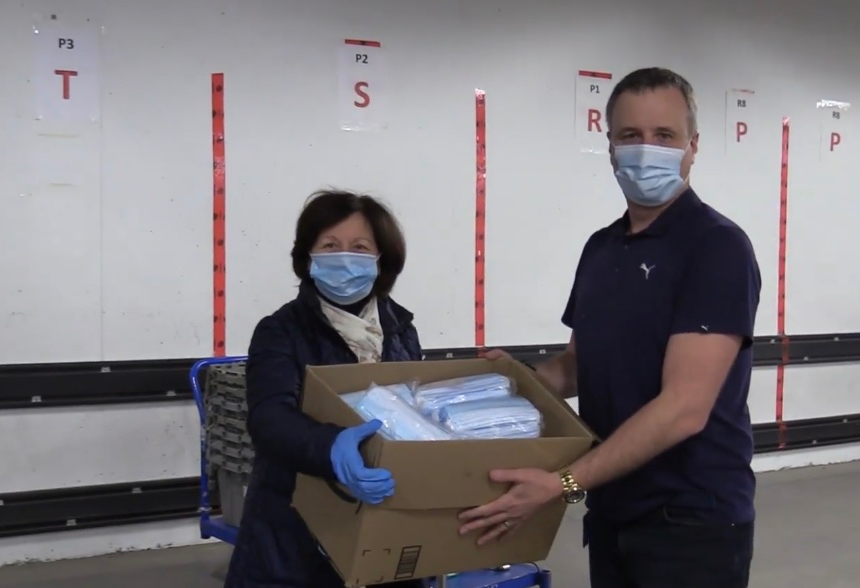
These envelopes, commonly known as “wrappers,” would be collected from all MUHC sites and then discarded. Instead, staff from the operating rooms and interventional platforms, with the help of Cristina Nagy, adult OR supervisor at the MGH and Glen site, Esther Matési, OR manager at the MHN, Maria Iannantuono, chief of operations, Medical Imaging, and the Hemodynamics team - collected the precious material for recycling. “We all know how much of a demand there is for gowns. At the MUHC, we’ve seen a threefold increase in the use of gowns since the start of the COVID-19 crisis. We quickly made the connection between these surpluses so the demand – and a chain of collaboration was quickly put in place,” says Steeve.
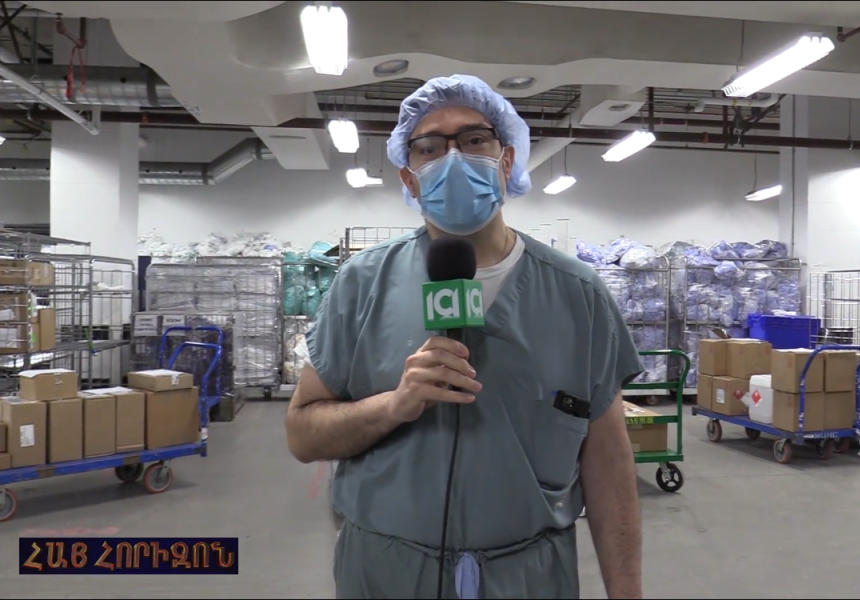
Dr. Sero Andonian, a urology surgeon at the MUHC of Armenian descent, proposed the help of his community. Ranaco Pelli, an Armenian clothing manufacturing company located in the heart of Ville Saint-Laurent, on the famous Chabanel Street, was contacted to make the gowns. Raffi Frengul, president of Ranaco Pelli, quickly had a prototype made entirely out of the wrappers.
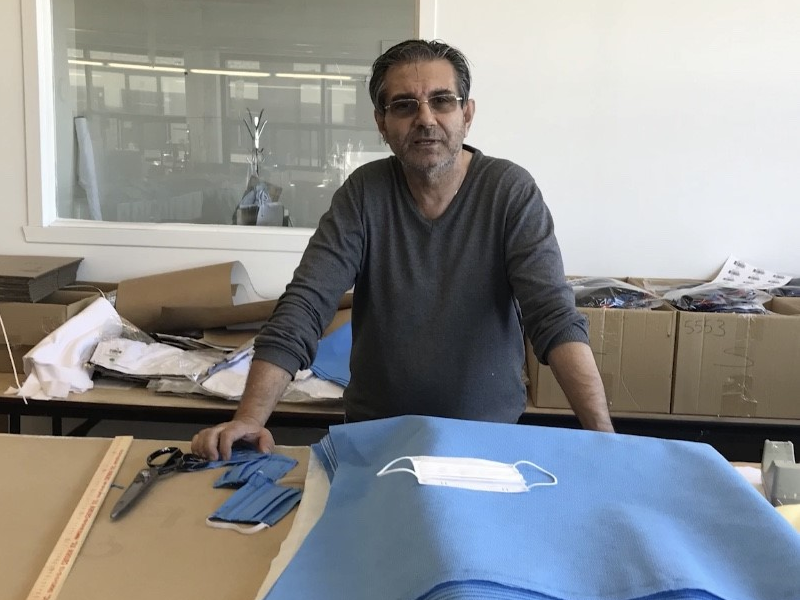
“We tested the new gown with doctors and nurses, and it was unanimously approved! Long, comfortable, resistant, waterproof, solid, and even… pretty! Some felt very proud to wear it. So, we were able to place an order with the manufacturer. In a very short time, they delivered more than 10,000 gowns,” says Steeve.
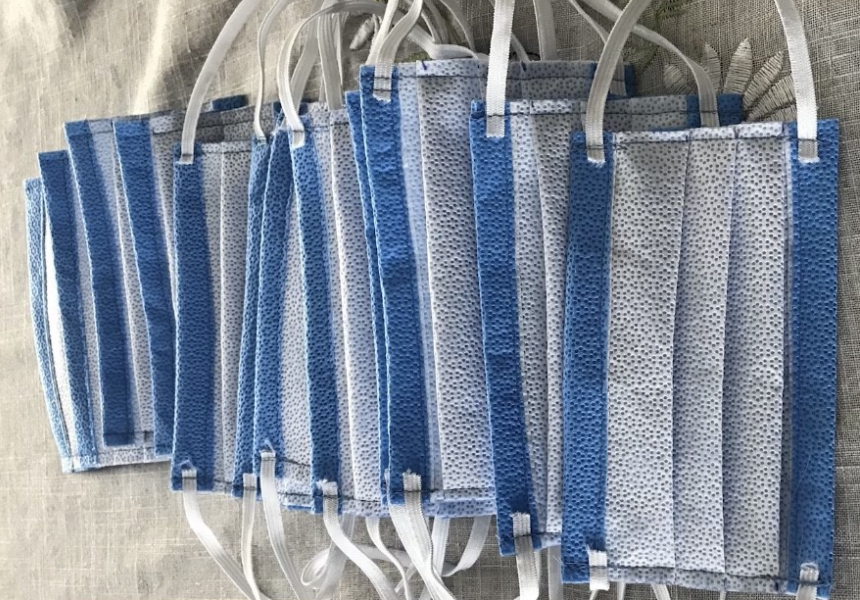
But that’s not all! There was enough leftover material to also make masks for both children and adults which they are now hard at work creating. “The Armenian community is really proud to help us and contribute towards recycling during the COVID-19 crisis. In fact, I am very proud of how this has increased awareness of recycling throughout the chain, despite these difficult times,” adds Steeve.
The next steps are to find ways to sterilize these new gowns to increase their life span, and to optimize their use on the various sites and testing tents at the MUHC.
All photos are taken from a video made by Ici TV, the Armenian television of Montreal, featured on the HAY HORIZON page on Facebook, and used with permission.

